Book Reviews by Genre: Other Fiction
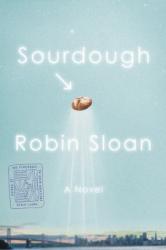
This book is.... very hard to categorize. I read it because I LOVED Mr. Penumbra's 24-Hour Bookstore, which was also kind of quirky. Lois, an engineer at a robotics company, is given a special sourdough starter by the odd owners of a small restaurant which closes unexpectedly and without much explanation. The starter has some unique properties, and Lois ends up becoming quite obsessed with its care and development, joining a very unusual and exclusive farmer's market to sell the bread she makes. An interesting tale of the melding of traditional skills and technology.
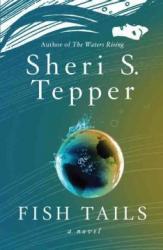
I decided to choose the book because it looked like it would tell a great story and it did. I liked the book due to its great lessons inside about the imperfections of our minds, but the greatness of them too. The part I enjoyed most was the journey f the main characters and how they didn't change their personalities and stayed focused on the topic. The part I didn't really enjoy was that the story went kinda slow. The book was pretty predictable, but the lessons and thoughts behind you need to think more about to get, so it was still entertaining to read. It was an amazing book to read and I definitely recommend it.
Reviewer Grade: 10
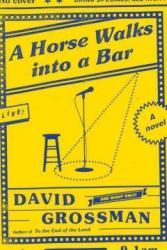
Somewhere along the line, I saw that this book won the Man Booker International Prize this year and put it on my “to read” list on Overdrive. I wasn’t quite sure what to expect, other than perhaps a little bit of comedy, considering the title is a basic setup for a joke’s punchline. In that sense, the book delivered on that premise by being about a stand-up comedian in a nightclub giving his routine to the audience. I did not expect, however, the deeper subtext about the character and his relation to the narrator. It’s in this subtext where we find the meat of this story.
It has often been said that “Sometimes all you can do is laugh to keep yourself from crying.” A Horse Walks into a Bar epitomizes this statement by blending serious subjects like cancer, death, and the Holocaust with a smattering of jokes, physical comedy, and anecdotal monologues. It’s in this contrast where we find how uncomfortable society is when dealing with the difficult subjects of life. I know I usually use comedy to cope with challenging situations, often in an inappropriate accommodation to the dour mood. In the end, we’d rather not address these facts of life because they don’t bring any joy into the world.
Partly due to a lack of explanation, as well as a somewhat jolting and meandering storytelling method, the plot of this book felt a little light, if not downright confusing. I’m sure if I had paid more attention to the words spoken by the ill comedian (who himself was kind of weird) I would have pulled more out of it and understood it better. Unfortunately, my mind always clings to the jokes, of which there a few good ones, and tends to ignore anything else that might be significant.
A bit uncomfortable, but poignant nonetheless, I give A Horse Walks into a Bar 3.5 stars out of 5.
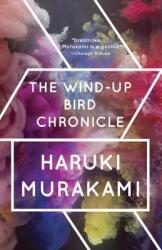
A coworker of mine suggested this book to me a few months back. The title sounded interesting, so I put it on my Overdrive wish list and waited for it to become available. Both he and I have a somewhat thorough understanding of Japanese culture, so once I got into this book, I found myself imagining it as an anime. Of course, because The Wind-up Bird Chronicle was originally written in Japanese, there are plenty of cultural idiosyncrasies that might be hard to understand from a different cultural viewpoint. At times, the content is a bit weird, the sex awkward, and the violence strangely surgical.
What was quite refreshing with the narrative in The Wind-up Bird Chronicle, was its timelessness. Written in the early 1990’s and set in the mid-1980’s, only a few technological items (i.e. a land line, an early computer, etc.) haven’t held up well over time. Everything else about the story is so character-driven that it could probably happen at any time. These characters are odd, to say the least. From psychic sisters named after Mediterranean islands to a wealthy perfectionist mother and her mute son, many of their sub-plots do end up tying together in the not-so-surprising ending.
As a “chronicle,” the book does feel episodic at times, hence why I imagined it as an anime. Because I have seen a lot of anime, the content of this book didn’t surprise me. There’s some weird stuff out there, and Japan seems to create quite a bit of it. While the sex and violence might be off-putting to some, it’s not necessarily erotic or graphic in its presentation; it is merely a fact of life. A strange life, to say the least, but a life nonetheless. Parts “slice of life,” “harem,” and “psychological thriller,” in terms of genre, The Wind-up Bird Chronicle is an excellent book for anyone already accustomed to Japanese storytelling.
A prime example of an almost “standard” Japanese plot, I give The Wind-up Bird Chronicle 3.5 stars out of 5.
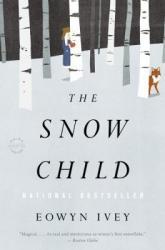
Set in the 1920’s, this is the story of Jack and Mabel, a childless couple homesteading on the Alaskan frontier. The workload is never-ending, and without children to help with plowing, planting and harvest, they struggle not only to survive, but to avoid losing themselves to despair and disappointment. It is a story not only of survival and grit, but also of the kindness found in a community of like-minded individuals and families. This theme is typical of much historical fiction about western expansion and pioneer life, but this story holds an unexpected and delightful twist, where magic, reality and fairytales intersect. The first snow of the year is met with a playfulness that is not typical of Mabel and Jack. They end their snowball fight by building a snow-child near their cabin, complete with mittens, a hat, and arms made from twigs. The next day, they discover that their snow child was destroyed during the night – likely by wild animals. Their journey from that point is full of hope and expectation. The story has a dream-like, ethereal quality, yet the author maintains the sense of solidity that is required for historical fiction to work. The pace is slow, but fits well with the time and place. I sincerely enjoyed this author’s first novel. It made me think about the importance of accepting others as they are – always an important consideration. I have Eowyn Ivey’s second book in my “to read” stack right now, and will eagerly read her future offerings.
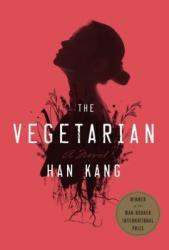
In this inventive South Korean novel (based on an earlier short story by the author), a woman decides to become a vegetarian after a disturbing, blood-soaked dream leaves her convinced that she needs to purify herself. Yeong-hye remains largely a mystery to us throughout the novel -- we hear about the situation mainly from her husband, brother-in-law, and sister, and they're often more interested in what they want from her (passivity, "normal" behavior, sexual gratification) than in understanding what's happening inside her mind. It's interesting to watch the escalation of behavior that's considered inappropriate; even the most mild changes to her routine provoke violent reactions and eventually lead her family members to cross lines of their own. At first, not eating meat alone is shocking and indicative of disrespect for her husband, then a refusal to wear a bra, then a discomfort with speaking -- and the gap widens more and more between Yeong-hye and the people around her as she withdraws from the world in her obsession with becoming more plant than animal.
Still, despite the oddity of the premise, it reads more like horror than comedy, and there was some real emotional weight to Yeong-hye's problems and to the exploration of the internal lives of her family as they react to her rebellion in increasingly bizarre ways. I liked the first section (dealing with the destruction of Yeong-hye's marriage) more than others, but they were all fascinating, and the sister's perspective helped bring things to a satisfying conclusion. Some parts were a bit too on the nose for my taste, but it was an engrossing read overall. There was a lot of reflection on the position and treatment of women in modern-day South Korea, which may interest some readers, as well as a more general look at the everyday violence around us, people's inner desires, and the pressure to conform. (I'd give this 3.5 stars if I could, but I rounded up because the writing deserved it.)

A must read for dog lovers.
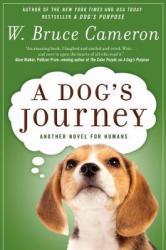
I could not put this book down. If you believe that either a person who passes might come back as a dog or whatever, in this case this dog keeps on coming back over the course of 70 years. Every time he is put down, he comes back as either a female or male dog and his journey is to take care of one girl.
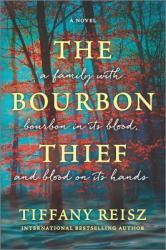
The main characters in the story are Paris Christie, Cooper McQueen, Tamara Maddox (the Maddox family is the family who owns the Red Thread Bourbon company), and Levi Shelby.
The Bourbon Thief is a must read! It's simply captivating and different from many other thrillers I have read. The story focuses on the past and ties it with the present. The author did a spectacular job in making sure we were blown away in everything she wrote. It felt original and the plot was mysterious and romantic. It was mysterious because the Maddox family's bourbon company shut down suddenly and no one knows why. Paris wants the bourbon, but why? What does Paris want to hide? I love the third person narrative because I saw each character's view points and the fact that I could read that was already amazing to me.